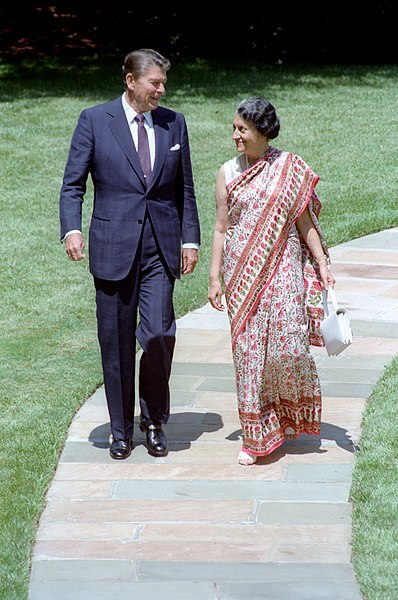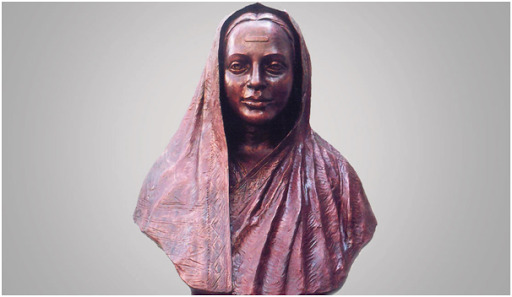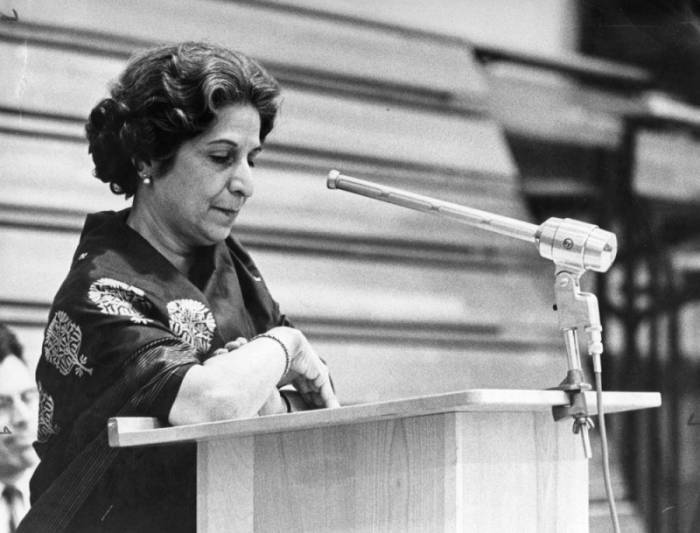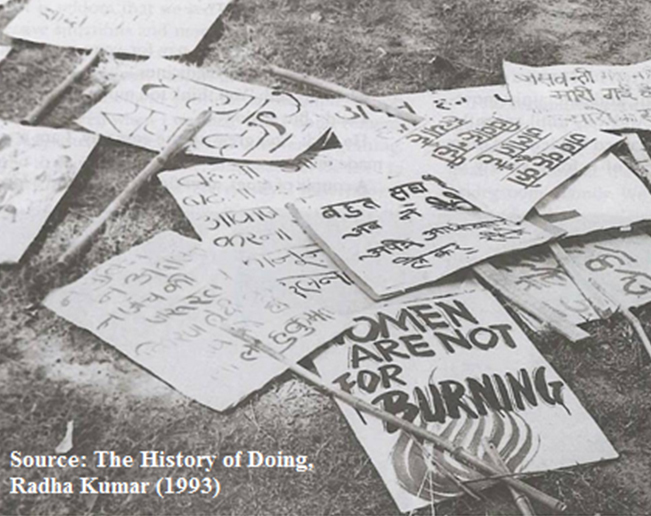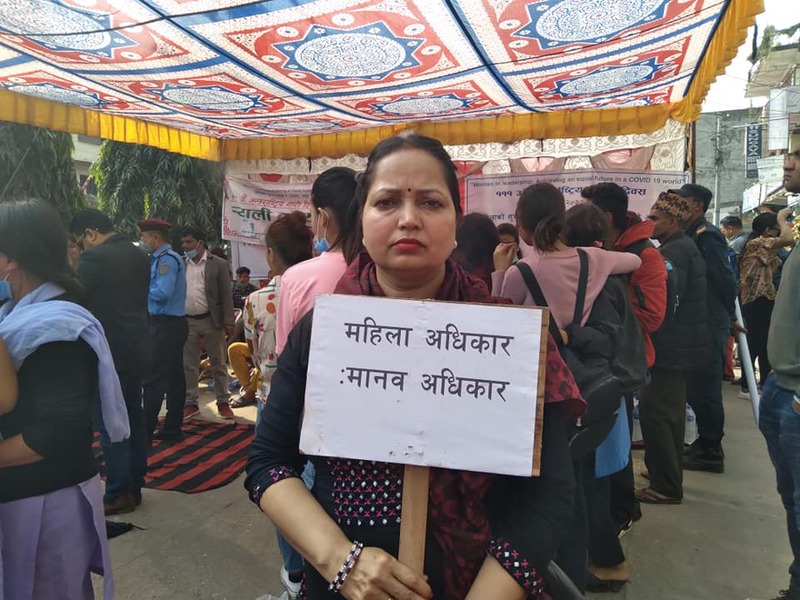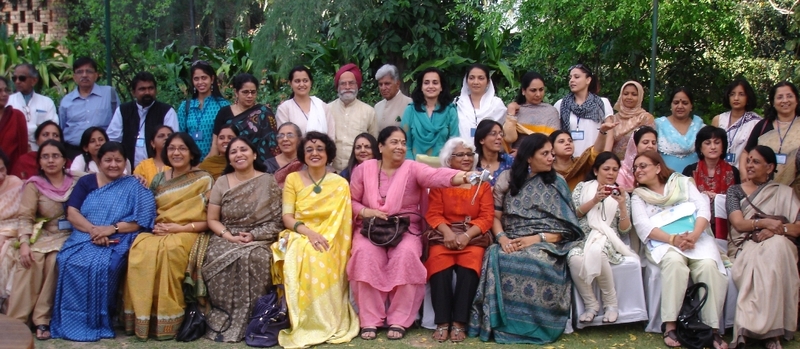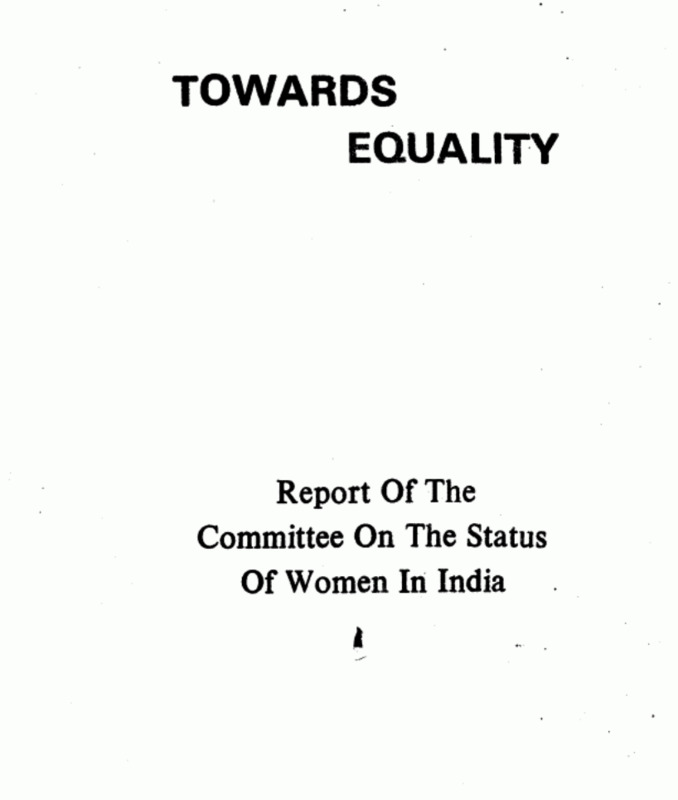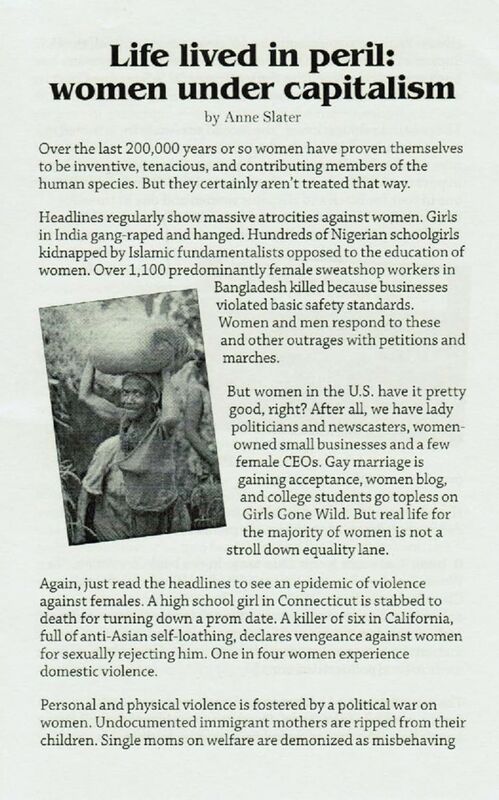Feminism in India and Nepal
By: Gurjot Shokar
I created this exhibit because growing up as a male in an Indian family, I have witnessed and experienced how sexist and oppressive the culture is around women. I wanted to learn about the progress made by the feminist movement in India over the years. The exhibit will highlight the challenges faced by women in India, such as gender-based violence and unequal access to education. It will also showcase the resilience and determination of Indian women who have fought tirelessly for their rights and the significant strides that have been made in advancing gender equality in India.
Indira Priyadarshini Gandhi was a significant figure in Indian politics and played a vital role in shaping the country's development and progress. Her leadership and policies had a significant impact on India's socio-political landscape and particularly on women's issues. She was India's first and only female prime minister, serving in office from 1966 to 1977 and again from 1980 until her assassination in 1984.
Gandhi's contribution to feminism in India is noteworthy. She was committed to promoting women's rights and empowering them in all spheres of life. She introduced various policies and initiatives aimed at improving the status of women in India, particularly those from marginalized communities.
Savitribai Phule was an Indian social reformer and educationist who played a crucial role in the feminist movement in India during the 19th century. She was the first female teacher in India and also the first woman to open a school for girls.
Phule believed that education was the key to women's empowerment and worked tirelessly to provide education to girls and women, who were denied this basic right at the time. She also fought against the caste system, which prevented women from accessing education and other opportunities.
Phule founded the Mahila Seva Mandal, the first women's organization, to train women and raise their social status. She also wrote about female infanticide and foeticide.
Phule's work sparked India's feminist movement. She fought patriarchy and worked for women's equality. Her legacy inspires Indian and global feminists.
Madame Vijaya Lakshmi Pandit, also known as Madame Rajan Nehru, was an Indian freedom fighter, diplomat, and politician who played a significant role in promoting gender equality in India. She was an early advocate of women's rights and worked to ensure that women had equal access to education, employment, and political participation.
Madame Nehru was a leader in the Indian National Congress and played a crucial role in the fight for India's independence from British colonial rule. After India's independence, she continued to work towards gender equality and was instrumental in the formation of the All India Women's Conference.
Madame Nehru's advocacy for women's rights extended beyond India and she was the first woman to be elected as the President of the United Nations General Assembly. She worked to promote gender equality and women's rights on a global scale.
Dowry is a long-standing practice in India where the family of the bride is expected to give cash, property, or other gifts to the groom's family at the time of marriage. This practice has been perpetuated for generations, despite being illegal since 1961. In many cases, the groom's family demands an exorbitant dowry, leading to financial strain and debt for the bride's family. If the bride's family is unable to provide the demanded dowry, it can result in harassment, emotional abuse, physical violence, and even murder of the bride.
Domestic violence against women is a prevalent issue in India, with many cases of physical, emotional, and sexual abuse going unreported. Women are often subjected to violence and harassment by their husbands and in-laws, leading to long-lasting physical and psychological damage. In many cases, domestic violence is linked to dowry demands and non-payment of dowry.
The Feminist Dalit Organization of Nepal, or FEDO, is a non-governmental organization that strives towards the promotion of social justice and economic empowerment for Dalit women in Nepal. FEDO operates on the principles of feminism and strives to end caste and gender-based discrimination. It aims to empower Dalit women by providing them with education, leadership training, and access to healthcare and legal services. Additionally, FEDO engages in advocacy efforts to increase awareness about the issues faced by Dalit women and to promote policy changes that will improve their lives. Overall, FEDO's goal is to promote a society in which all women have equal opportunities and are able to live with dignity and respect.
The South Asian Women’s Conference in Chandigarh in 2010 was a conference organized by the Centre for Research on Rural and Industrial Development (CRRID) in partnership with Jamia Millia Islamia, with the theme “Cooperative Development, Peace and Security: Women Guiding the Destiny of South Asia”. It was the second conference in the series that began with the Conference on “Women of South Asia: Partners in Development” held in New Delhi in 2009.
The objectives of the conference were to provide a platform for networking and interaction among women from South Asia, to share experiences, learn from each other, and identify best practices. The conference aimed to facilitate issue-based collaboration across South Asia based on agreed plans of action. The conference also aimed to assess the presently used global indices for measuring gender parity and gender equality.
The outcomes of the conference included the evolving of a goal-based Plan of Action with specific projects for gender empowerment in South Asia. The South Asia Women’s Network (SWAN) was established to focus on developing institutional linkages so that the individual SWANs could function as Networks of Excellence for gender empowerment in South Asia. Each Network would function within its defined objectives and targets. This would include identifying which negative practices needed to be discouraged and which best practices would be adopted by each network. The conference also noted positively and with satisfaction the follow-up activities that had taken place since the inaugural SWAN conference in New Delhi in March 2009.
The "Towards Equality: Report of the Committee on the Status of Women in India" is a comprehensive document that was published by the Government of India in 1974. The report highlights the discrimination and inequality faced by women in various spheres of life, including education, employment, and political participation. It also identifies the root causes of gender inequality and provides recommendations for policy changes to improve the status of women in India. The report is considered to be a landmark document in the history of women's rights in India and has influenced policies and programs related to gender equality in the country.
This report exposed the discriminatory issues women faced on a socio-cultural, political, and economic level and laid the groundwork for a women's movement in India. Vina Mazumdar and Lotika Sarkar, two of the most well-known feminists in India's modern movement, were among the authors.
South Asian women have a rich history of resilience, perseverance, and innovation, proving themselves to be invaluable members of the human species. Despite facing numerous challenges and barriers, South Asian women have demonstrated their strength and tenacity in various fields, including science, politics, literature, and the arts.
For example, South Asian women such as Malala Yousafzai, Sharmila Tagore, Kiran Mazumdar Shaw, and Indra Nooyi have made significant contributions in their respective fields and have become icons of inspiration for women across the globe. From fighting for education rights to leading multinational corporations, South Asian women have shattered stereotypes and defied societal norms to achieve their dreams.
Citations
“Dowry and Domestic Violence .” Feminist Law Archives, 17 Sept. 2015, https://feministlawarchives.pldindia.org/catlist/?catid=38.
Gallery: Human rights and access to justice - fedonepal.org. (n.d.). Retrieved March 8, 2023, from https://fedonepal.org/theme-gallery/human-rights-and-access-to-justice/
Gayatri. “Savitribai Phule: The First Female Teacher of India.” RealShePower, 30 Mar. 2021, https://www.realshepower.in/savitribai-phule-the-first-female-teacher-of-india/.
“‘Life Lived in Peril: Women under Capitalism’ Brochure for Radical Women.” cdm16786.Contentdm.oclc.org, https://cdm16786.contentdm.oclc.org/digital/collection/p16786coll12/id/395/rec/1.
“President Ronald Reagan Walking with Prime Minister Indira Gandhi of India Outside The Oval Office.” National Archives and Records Administration, National Archives and Records Administration, https://catalog.archives.gov/id/75856933.
Swan 2nd International Conference held in Chandigarh. South Asia Women's Network (SWAN). (n.d.). Retrieved March 7, 2023, from https://www.swaninterface.net/swan-2nd-international-conference-held-in-chandigarh/.
“Towards Equality: Report of the Committee on Status of Women in India (1974) Archives.” Feminist Law Archives, https://feministlawarchives.pldindia.org/category/towards-equality/towards-equality-towards-equality/.
Young, Steve. “00117518.” Tessa , https://tessa2.lapl.org/digital/collection/photos/id/50870.
About the Curator
Gurjot Shokar (he/him): Born in California, University of Washington Bothell Student, Computer Science Major
Acknowledgments
Dr. JulieShayne (she/her): Faculty Co-coordinator: Gender, Women & Sexuality Studies
Tessa Denton (she/her): Undergraduate Teaching Assistant
Denise Hattwig (she/her): Head of Digital Scholarship, UWB Library
Penelope Wood (they/them): Research & Instruction librarian, Gender, Women, and Sexuality Studies & Engineering
